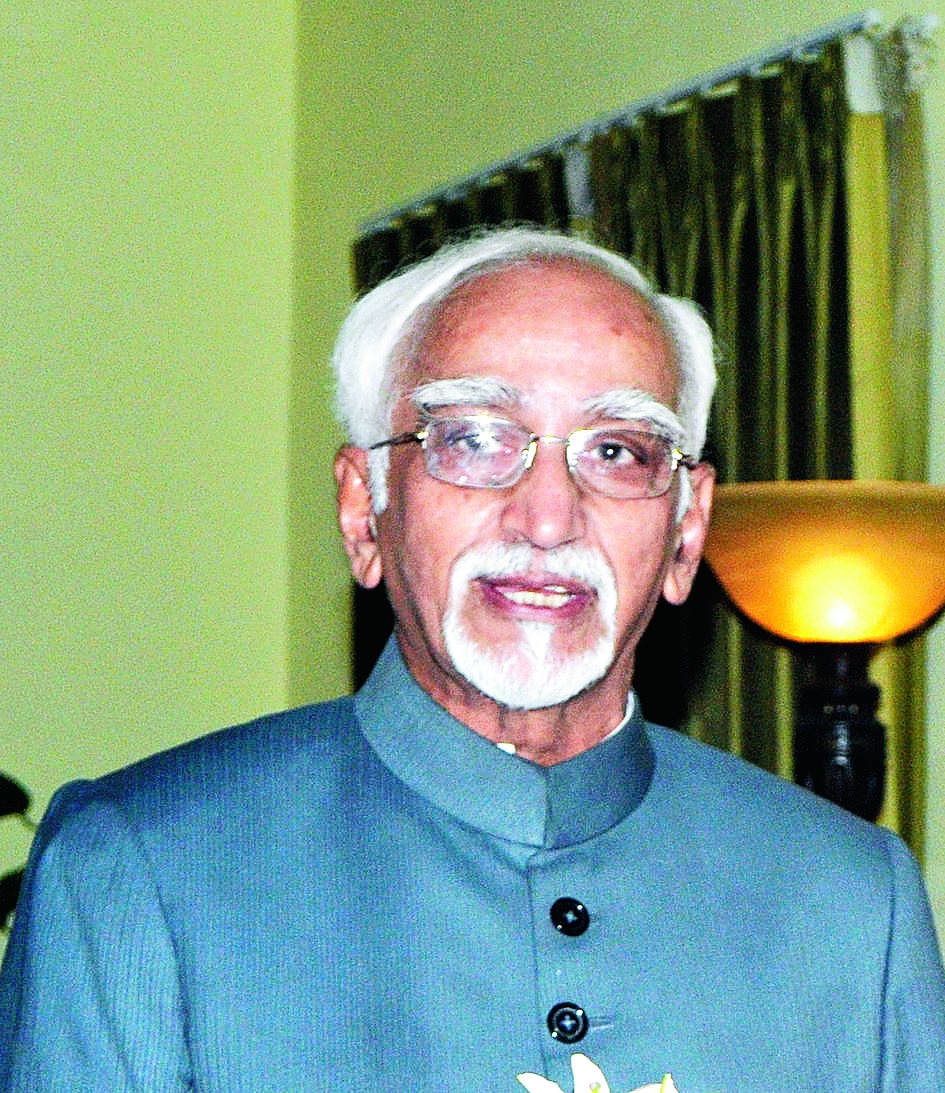
New Delhi, Feb. 14: Vice-President Hamid Ansari today cautioned against any attempt at "homogenisation" of India's pluralist society and undermining of individual liberties while asking the State to adhere to the rule of law instead of the "rule of politics".
He also argued against any understanding of internal security in terms of just law and order and the tendency to handle it with greater militarisation rather than addressing the vital concerns of livelihood, rights and culture.
Ansari was delivering the fifth K. Subrahmanyam memorial lecture, organised by the Global India Foundation, on "Domestic dimensions of security".
Subrahmanyam, considered the pioneer of strategic policy-making in India, had been an influential voice in the country's security affairs. Today his son, current foreign secretary S. Jaishankar, was present on the dais when the Vice-President censured the State's approach to security, including the tendency among ruling party members to undermine the constitutional guarantees of religious equality.
"The existential reality of modern India is a plural society of immense diversity devoted to the realisation of objectives and ideals enshrined in the Preamble of the Constitution," Ansari said. "It is premised on the individual as the basic unit of citizenship on terms of equality with every other citizen. It, therefore, aspires towards a form of citizenship that is marked neither by a universalism generated by complete homogenisation, nor by particularism of self-identical and closed communities."
He added: "The operative principle for this is 'national-civic' rather than 'national-ethnic', though a segment of opinion today would want to modulate or amend it and espouse instead an Indian version of 'cultural nationalism' premised on 'religious majoritarianism'. This would be in contrast to the hitherto accepted philosophy of liberal nationalism."
This was an explicit reference to the agenda of the RSS, the ideological mentor of the ruling BJP.
Ansari quoted a political scientist to explain the challenges posed by this approach. "In the semantics of fundamental politics the term national integration means, and ought to mean, cohesion and not fusion, unity and not uniformity, reconciliation and not merger, accommodation and not annihilation, synthesis and not dissolution, solidarity and not regimentation of the several discrete segments of the people constituting the larger political community...."
It was clear that the Vice-President was concerned about the growing divisions in the society and the government's role. "It needs to be said that many, if not all, of these instances of social strife also portray a failure of the State agencies to undertake timely preventive or corrective action," he said.
"Making an assessment for 2016, the South Asia Terrorism Portal has observed that while the immediate challenge of terrorism and insurgency has receded across the country and across the ideological spectrum, the conflict potential in India remains high and is often exacerbated by State policy and partisan politics."
Differing with the State's approach towards internal security threats from Maoists and the violence in Jammu and Kashmir and the Northeast, Ansari said: "In the disturbed and insurgency-infested areas, people feel insecure both from the insurgents and the State. The State's response has been to seek more security forces and greater militarisation of the environment. The public feels that the State is absent in areas of their interest and that its interest is detached from them."
Ansari advised the State to focus on society and individual liberty while dealing with internal security. "The key is to keep the focus on both the people and society, and on the rule of law that, regrettably, has been undermined by the rule of politics," he said.
"Some years back a constitutional authority had depicted the rule of law as being under siege on account of 'cancerous developments eating into the fabric' of the three organs of the State - the legislature, the executive and the judiciary."
Ansari was referring to an essay by G.E. Vahanvati, the former top law officer of the country.











